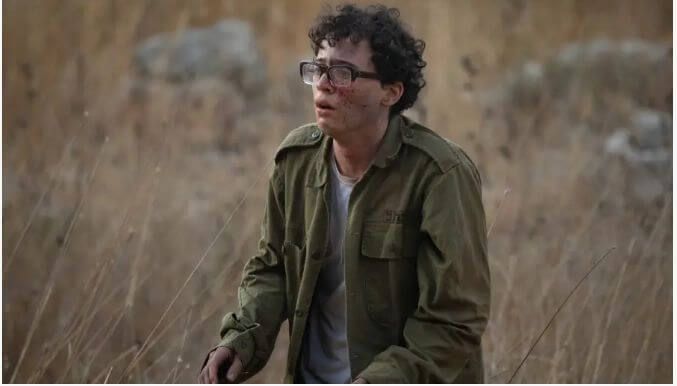| 1 |
Israel’s so-called coronavirus cabinet on Monday was expected to convene to discuss the next stage of the COVID-19-related lockdown. While some ministers support a partial reopening of the economy beginning next week, Prime Minister Benjamin Netanyahu stated that it is too early to make such decisions. The Israeli leader instead emphasized the importance of implementing a long-term, data-driven exit strategy that includes protecting the elderly and stepping up enforcement efforts.
The percentage of patients who on Sunday tested positive for the virus, coupled with an overall decrease in the number of active cases, is being cautiously viewed as an indication that the near-total nationwide shutdown is starting to bear fruit. And even though the infection rate remains relatively high among the hard-hit ultra-Orthodox sector, it has decreased in various Arab communities.
On September 18, the government implemented a partial closure, which a week afterwards was strengthened as the country’s number of COVID-19 diagnoses soared. According to the Health Ministry, daily infections reached an all-time high of 9,053 last Wednesday, decreased to 7,031 two days later and then plummeted to 2,581 and 2,905 on Saturday and Sunday, respectively, when figures are always lower due to reduced weekend testing.
| 2 |
Israeli Defense Minister and Alternate Prime Minister Benny Gantz held a first-of-its-kind town hall-like meeting with Arab journalists, during which he spoke in English about perceived efforts by Iran and Turkey to destabilize the Middle East while undermining the US’ peace initiative.
Among the participants were Mohamed Al Hammadi, editor of the United Arab Emirates-based Alroeya newspaper, and Ahdeya Ahmed Al-Sayed of Bahrain. They were joined by two Saudi reporters and numerous others for the event organized by the Arab Council for Regional Integration.
During the Zoom call, Gantz said he hoped that the normalization of relations between Israel and Arab states would help to combat extremism: “We need to be able to offer a better alternative, to show the positive outcomes of moderation,” he stressed. “Israel has largely been an island, but we have so much to offer and so much to receive. There is no better strategy than actual human ties.”
The Israeli military published a video allegedly debunking Iranian-backed Hezbollah’s claim that a recently exposed site in Beirut is a civilian industrial factory as opposed to a missile-production facility.
In an address last week to the United Nations General Assembly, Prime Minister Benjamin Netanyahu revealed the installation, which is located in the Lebanese capital’s Janah neighborhood. Thereafter, the Hezbollah terrorist organization arranged a media tour of the premises with a view to presenting the operations there as innocuous.
However, that is far from the truth, according to the IDF.
Turns out you need more than one hour to evacuate a Precision Guided Missile (PGM) manufacturing site, so Hezbollah hoped the reporters just wouldn’t notice.
Well… we did.Here’s what was hiding in plain sight: pic.twitter.com/8rPv0szslM
— Israel Defense Forces (@IDF) October 2, 2020
The Israel Defense Forces then posted another video showing “suspicious traffic” moving between two Hezbollah sites in Beirut.
What else is Hezbollah trying to hide in Beirut?
Shortly after we exposed a Hezbollah Precision Guided Missile manufacturing site in the Chouaifet neighborhood, we identified suspicious traffic leaving the location to another Hezbollah facility in Borj el-Brajneh: pic.twitter.com/GqW426904X
— Israel Defense Forces (@IDF) October 2, 2020
| 4 |
Israel and Lebanon have agreed on a framework for indirect, US-mediated talks geared toward solving a longstanding maritime border dispute. The development “will allow both [Jerusalem and Beirut] to begin discussions, which have the potential to yield greater stability, security, and prosperity for Lebanese and Israeli citizens alike,” US Secretary of State Mike Pompeo said.
The negotiations, which are expected to kick off on October 14, will be held at the headquarters of the United Nations peacekeeping force in the southern Lebanese border town of Naqoura.
Israel and Lebanon have no diplomatic relations and are technically in a state of war. The nations each claim an area in the Mediterranean Sea of about 860 square kilometers (330 square miles) as part of their exclusive economic zones.
A drama about the Yom Kippur War, titled Valley of Tears, will premiere in Israel on October 19. It is being billed as the most ambitious television series in the Jewish state’s history. The 10-part series, which cost more than $1 million per episode, is being released during the month that marks the 47th anniversary of the war.
The plot focuses on the IDF’s ability to fend off an attack by Syrian forces along the country’s northern border until reserve forces could be mobilized.

Recommended Content
- Fatah-Hamas: A Bloody History of Reconciliations (Dov Lipman, HonestReporting)
- Will Rekindled Negotiations Between Israel and Lebanon Weaken Hezbollah? (Jerusalem Post Editorial)
- The UN Must Rethink Its Route (Gilad Erdan, Israel’s Ambassador to the United Nations, Jewish News Syndicate)
- Report: Jordan Expels Nizar Tamimi, Husband of US-Wanted Terrorist (Jackson Richman, Algemeiner/Jewish News Syndicate)
- Technologies That Can Help Us Stay Calm During COVID-19 (Brian Blum, Israel21C)

